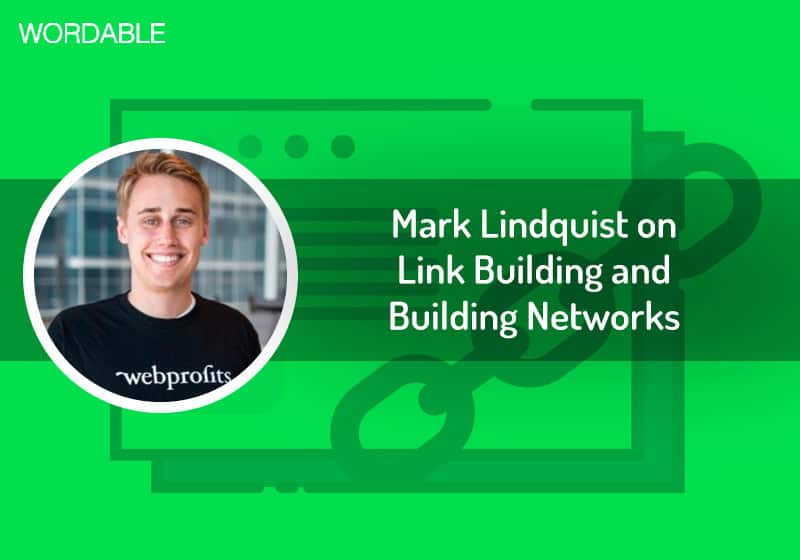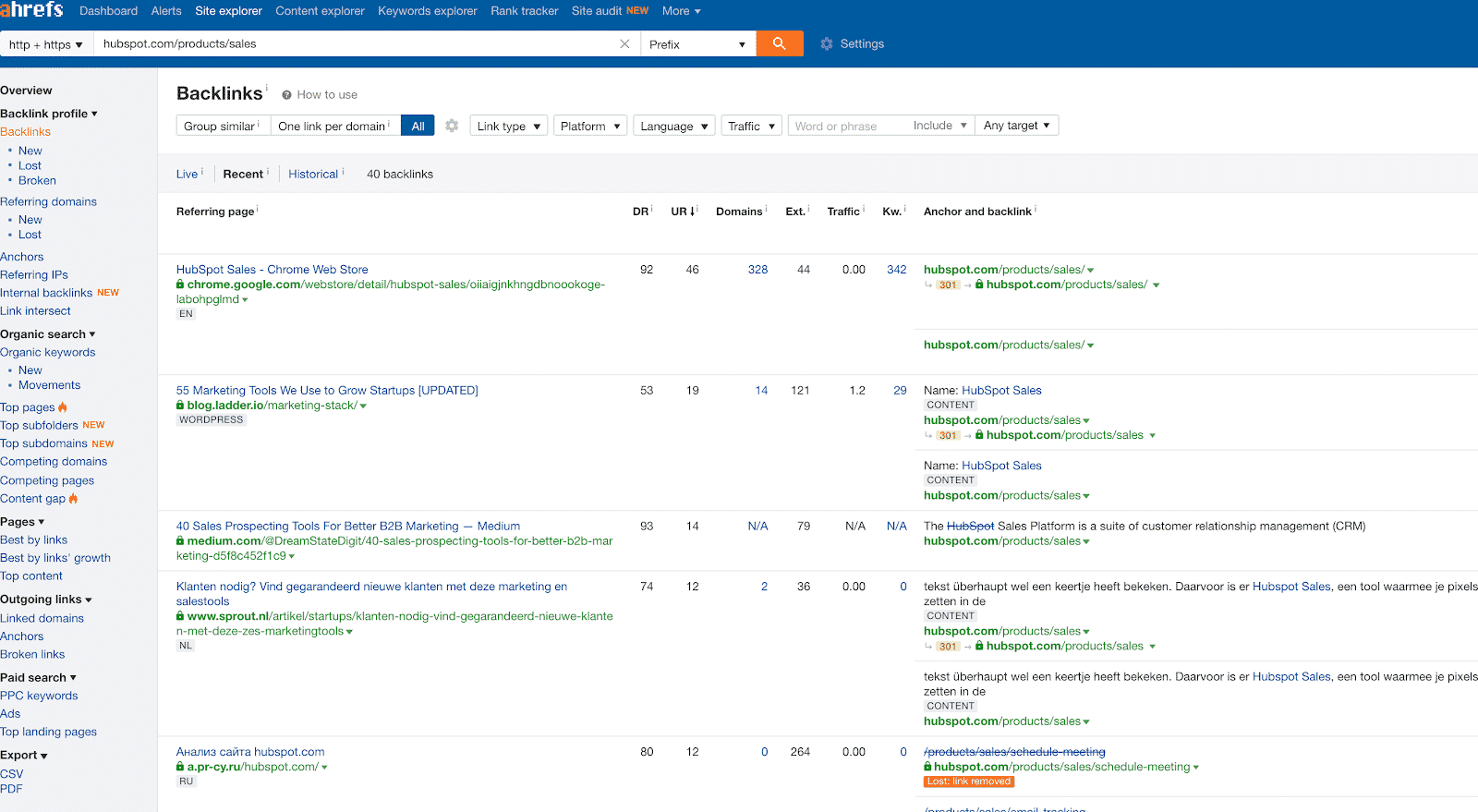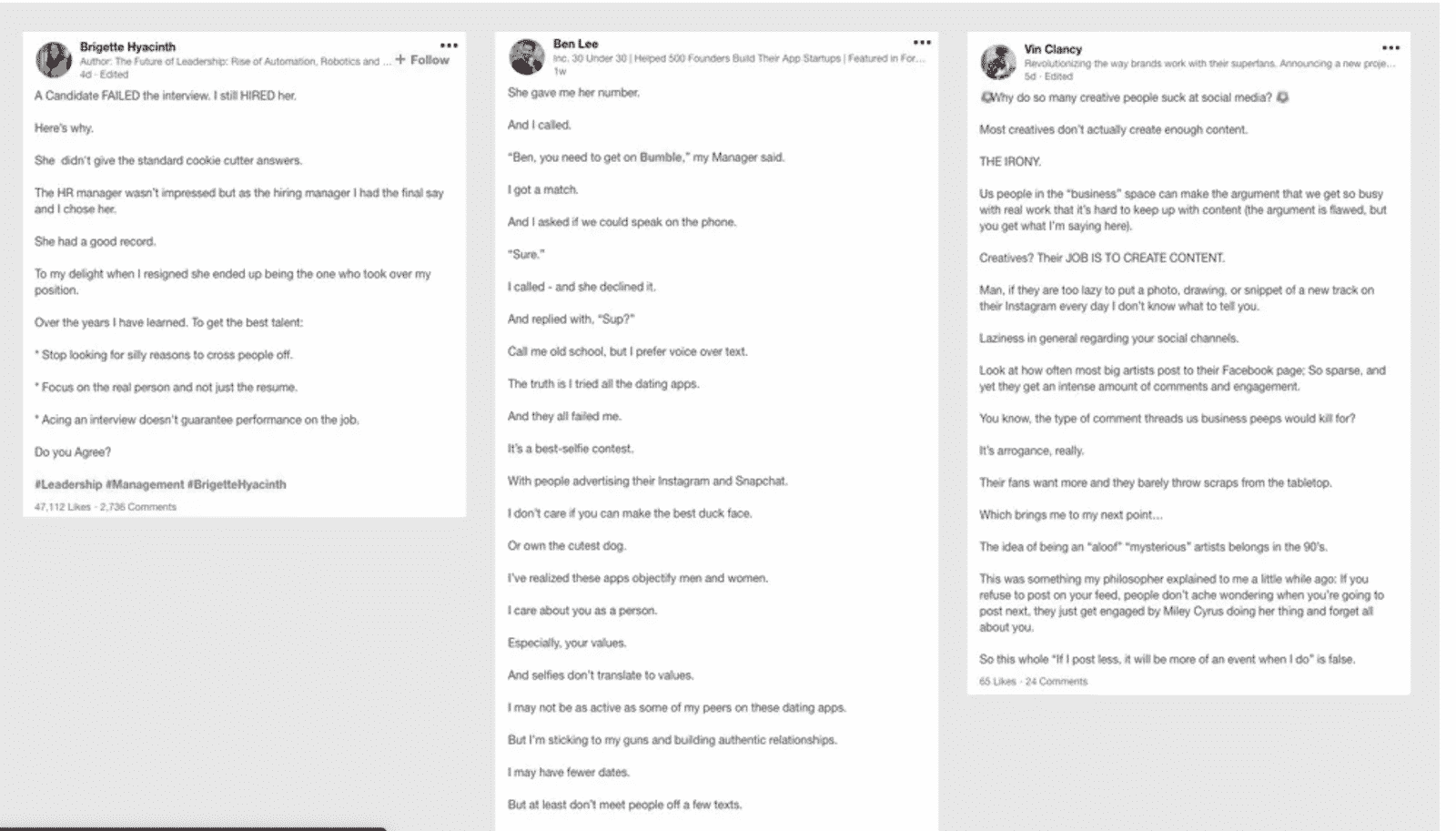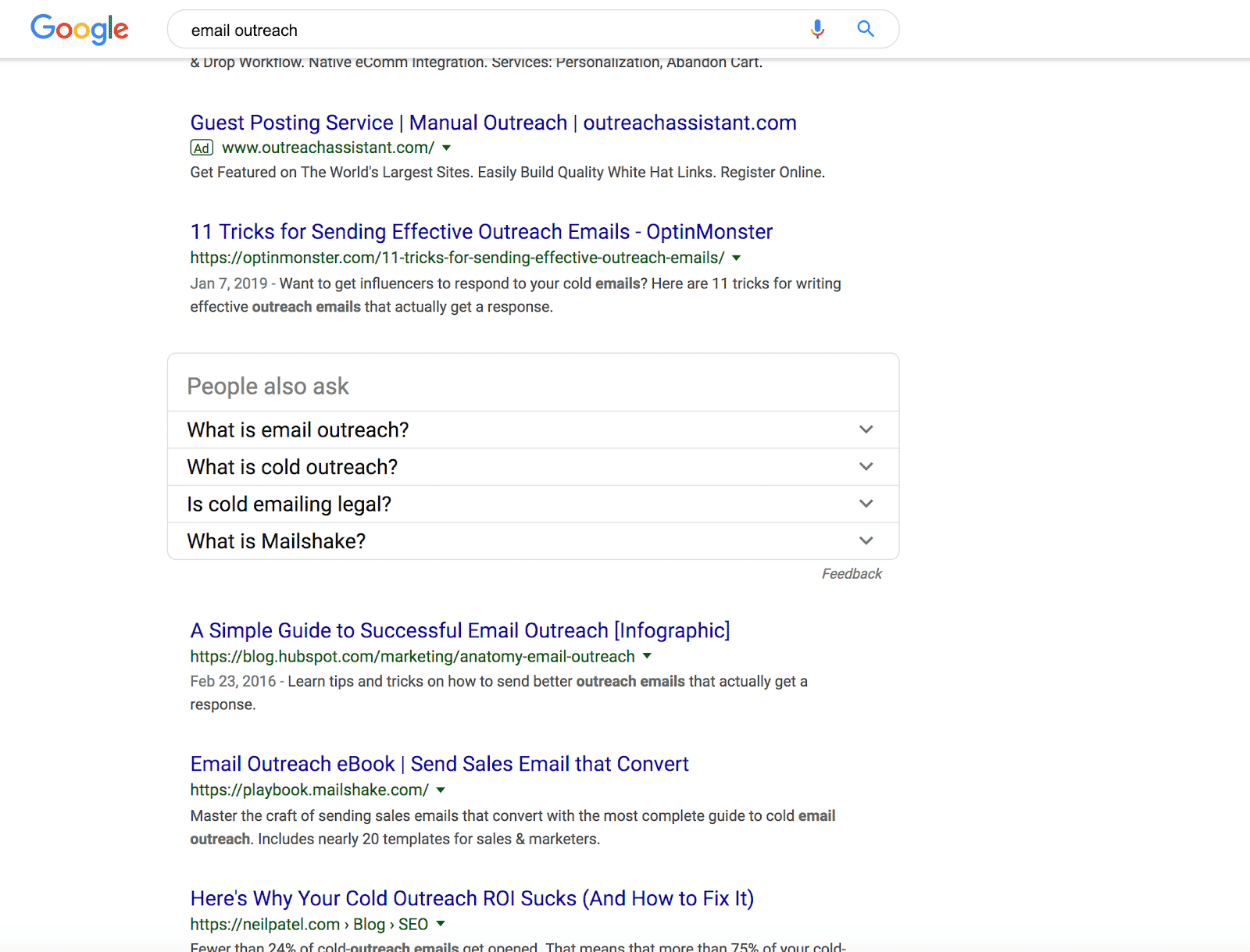
Content Crafters is an interview series where we de-construct the tools, tips, and tactics that top bloggers use to get so much work done. you’ll walk away in mere minutes with actionable takeaways you can try out right away. Let’s dive in!
Mark Lindquist is a marketing strategist at Mailshake, a SaaS company focused on building sales automation tools to help business professionals – including content marketers – perform better and more effective cold email campaigns.
Previous to that, Mark was a senior content strategist at a digital marketing agency in Austin, Texas. His career roots, however, are in startups. Out of college, Mark was the cofounder of a startup called Canary, based out of Boston.
Mark is a prolific content marketer who has written tons of articles that rank for powerful keywords on page one of Google and that have been shared a ton on social.
He’s also a master at link building and SEO, core skills needed to really win at content marketing and blogging. We’ll cover link building in detail in this interview, and you’ll certainly walk away with actionable advice.
He also bears a slight resemblance to a young Macaulay Culkin.
You can find Mark online on Twitter at @MarkaulayCulkin or on LinkedIn here.

I stumbled into content marketing a little bit.
I started my career at a startup we founded in college. At the time HubSpot offered their product at 90% off through a startup program, and I met with some of the team there to help me wrap my head around how we could use content marketing as an acquisition channel.
Then, I moved from Boston to Austin where I worked at a marketing agency for small businesses (moving companies, dry cleaners, that type of stuff) building websites and managing their digital presence. Content marketing was a part of that. None of our clients took content marketing seriously, though, so I still didn’t understand how it really worked.
Then I met my current boss, Sujan Patel, where I learned what content marketing really is, the investment it takes to make it successful, how to write decent content, promote it, build links, all the important stuff. I worked at Sujan’s marketing agency for a year and a half until Mailshake could support a full-time marketer. I’ve been with Mailshake wearing many hats but doing primarily content marketing since January of 2018.
It’s all I know about how to do my work, so for better or for worse, it’s fully defined my approach to everything I do.
It’s helped in that it’s always kept me out of the weeds enough to keep an eye on whether or not what I’m doing is going to drive revenue. I’m always thinking about where in the process my work leads people to buy our product, and I’m always questioning whether or not what I’m doing is the best use of my time for the company.
In that same vein, I think it’s made me less willing to do what I’m told if what I’m told doesn’t seem to make business sense to me.
That means I’m probably a lot more headstrong and argumentative about how I spend my time, which I’m sure is annoying to Sujan or any boss that I’ve had. A big learning experience for me is recognizing that I’m not always right, and that I should approach testing other approaches with an open mind.
I don’t work with “influencers” per se, at least in the sense that most people think about them. For instance, I’m not at all concerned about the social following of someone as an indication of whether or not they’re worth connecting with.
My primary goal at Mailshake is to create content that’s relevant to our target market, and get that content to the top of search results. The “influencers” that accomplish those goals are:
I’d say most companies don’t need to work with the people who fit the classic definition of “influencers.” Figure out what your goals are, find the people who can help you accomplish those goals, and build relationships with them. Influencer status be damned.
Since I have two groups here, I’ll address my process for both:
For practitioners, I find them by following sales podcasts.
These podcasts have done the hard work of finding knowledgeable people who want to share their experience on specific topics, and giving me a base upon which to decide if they’re a good fit for content on the Mailshake blog.
I look at the topics of these podcasts, do some keyword research to find overlap between topics and keywords with search volume, and reach out via email saying I loved them on X podcast, am writing an article on their topic, and if they have 30 minutes to answer a few questions to build on what they discussed in the episode.
My success rate on that outreach is about 90%, since it’s flattering them and offering them free coverage about their topic that they’re clearly looking for given that they went on a podcast to talk about it.
For editors and content managers, I use Ahrefs to grab all the sites that link to our competitors content, and review them one-by-one to find sites that have decent domain authority and are actually relevant to our site (a lot of links come from random irrelevant sites or inactive blogs).

Then I use a system of Google search operators to find their content person on LinkedIn. My experience has been that LinkedIn search is useless and throttles you quickly, so I try to do most of my searching on Google.
For both, I use Voila Norbert to find their email addresses. Sujan is also an owner, but I would use it even he wasn’t. I’ve used most of the email finder and content promotion tools out there and Voila Norbert is the best I’ve found for the money.
As I see it, writers and journalists are in it for the craft.
They write because it pays the bills or because they love it (hopefully both). They’re less concerned about marketing what they write.
Content marketers are obsessed with making sure the content they create gets in front of an audience who would potentially buy their product. There’s a lot more that goes into creating content when you need a plan to promote it than if you’re writing for the love of the game.
A good content marketer creates good, unique content (meaning there’s something that’s different or better about it than what’s out there) in a way that makes it possible to get it in front of an audience.
So they’re not sacrificing quality for promotability, they’re just marrying the two.
The most underrated skill for a content marketer is being able to come up with content topics, whether they’re written blogs, videos, webinars, or something in between, that are promotable, unique, and useful to the reader.
Most content that’s created is exactly the same as 1,000 other articles just with slightly different words.
Good content marketers can put a little topspin on their topics to make it more interesting, and narrow in from 10,000 feet down to something concrete a reader can take and use in their own lives.

My whole approach to content marketing is based on the fact that it’s impossible to execute well without a network of relationships with people in your space to help you promote content and build links.
Not just difficult; literally impossible.
If you’re just going to create great content and blast off promotion with no eye to long-term relationships, it leaves you starting from scratch every time, and it’s just too competitive out there to make that work.
Building on that, my approach to building links is that in order to quickly build lots of links from valuable sites, you need to give a lot more than you’re getting up front. Your outreach to someone you don’t have a relationship with yet needs to be so clearly one-sided in their favor that the only reason they would say no is because they don’t believe that you can actually deliver on what you’re promising. You need to make them offers they can’t refuse. Then, when you do deliver, you have a friend for life. They know that you do what you say, and they’ll be down to make introductions and work with you on other projects that really move the needle.
Good question. I don’t think there are many content marketers that still believe that creating a great piece of content and asking people to switch or add a link to an article of theirs for nothing in return actually works.
Moving one step up the naivety ladder, though, I’d say it’s people beating around the bush.
If you’re doing outreach to build links, you know that’s what you’re doing and anyone worth getting a link from knows that’s what you’re doing. If you don’t have a relationship with someone and are reaching out cold, be 100% up front about what you’re doing, what you want, and what you can give them. You’ll either get the people who want to play ball or you’ll weed out the people who would’ve said no anyways.
Approach your content promotion like a salesperson approaches prospecting, not how a marketer approaches literally everything.
I spend most of time in back-and-forth with people trying to secure links for them and links on their site for me. This I’m sure is not automatable, and is “outsourceable” only in the sense that I could technically hire someone to do it, but having real conversations with people after the first email takes time and thought and genuine effort.
It’s worth the effort, but it feels like a slog when you’ve done a round of outreach and are having 15 of the same conversations with 15 different people at the same time.
Nothing weird, I don’t think. I’m a big believer in balancing my energy.
I work out in the afternoon when my energy is always low and I won’t be productive anyways. Since we have a pretty big team of contractors that I rely on, one of the biggest lessons I learned from Sujan was to never be the bottleneck holding up someone else.
If someone’s waiting for my approval on something and I put it off for no particular reason other than laziness, I’m losing days of work from them for something that will take me 5 minutes to keep moving.
That’s why I always prioritize feedback and keeping momentum on projects.
Do people still do that LinkedIn thing where they write one sentence per paragraph and start it with some dramatic intro to promote a piece of content in the comments? I hope not. If so that needs to die a quick and painful death.

There’s a trend of other sites outranking my content that needs to stop. I would like any site that outranks us for any keyword to remove that article from their blog.

1. Approach content promotion like salespeople approach prospecting.
Get to the point, show why they’ll benefit from helping you, follow-up consistently with more support for your position and not ‘hey did you see my email? Respond!’. Content promotion (and most things) is a form of sales, so treat it as such.
2. Get familiar with scraping tools (I use Instant Data Scraper and web scraper).
And on a similar note, get good at excel. Once you realize how easy it is to scrape websites and clean up data in excel, it will change the way you approach solving problems, and save you hundreds of hours a year in the long run once you automate a repetitive task that’s busy and not productive.
I could not be less experienced with real tech stuff (for example, I just called it “real tech stuff’) and I’m 100% sure I use scraping and excel more than most marketers out there. You can do it too.
3. When it comes to building relationships with other marketers in your space, get on phone calls with them.
The difference in the quality and the value of relationships that are purely email-based vs. the ones where I’ve had even just 1 phone call is huge. It also gives you a chance to serendipitously identify other co-marketing opportunities, like webinars, product swaps, etc.
Generally I’d recommend not relying on serendipity to be a reason you do something, but the best marketing initiatives I’ve put together have started with innocuous phone calls to “explore opportunities.”
It happens so consistently that I can’t recommend it enough.
I saved 3 hours uploading this post from Google Docs to WordPress using Wordable. Try it here.